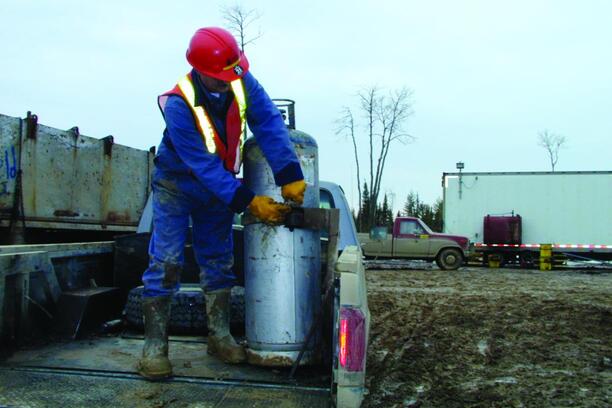Boosting Safety for Propane Delivery Drivers

Safety remains a paramount concern in the propane industry, particularly for delivery drivers who face inherent risks in transporting and handling this energy source. As regulatory bodies continue to update safety standards and the public becomes more safety-conscious, propane delivery companies must prioritize enhancing their safety protocols. Let’s take a look at some practical measures and strategies that these businesses can adopt to ensure driver well being, strict compliance, and sustained industry reputation.
Recognizing the Hazards: A Step Towards Prevention
Understanding the risks involved in propane delivery is the foundational step in enhancing safety protocols. These risks include vehicle accidents, propane leaks, explosions, exposure to harsh weather conditions, and manual handling injuries. Recognizing these hazards allows companies to create tailored safety protocols addressing the specific vulnerabilities of their operations and employees.
Comprehensive Safety Training Programs
Training is the cornerstone of safety. Drivers need to be knowledgeable and prepared to handle various scenarios, from routine deliveries to emergency situations. Investing in comprehensive training programs that cover defensive driving, proper handling and transportation of propane, first-aid procedures, and compliance with regulatory standards is crucial. Regular refresher courses are also essential to keep drivers updated on new safety protocols and equipment.
Technological Integration for Enhanced Safety
Modern technology offers tools that significantly contribute to driver safety. Equipment such as in-truck monitors can track driving patterns, helping to identify and correct risky driving behaviors. Advanced GPS systems within various apps ensure drivers follow the safest and most efficient routes. Leak detection devices and emergency shut-off systems are vital in preventing and mitigating leak-related incidents. By harnessing these technologies, companies not only enhance safety but also demonstrate a commitment to using every available resource to protect their employees.
Mental Health Considerations and Support
Driver safety isn’t just about physical well being; mental health plays a crucial role too. The stress of meeting delivery targets, driving under challenging conditions, and handling hazardous materials can take a psychological toll. Propane delivery companies should offer support in the form of counseling services, stress management training, and a work culture that encourages speaking openly about mental health concerns.
Routine Safety Audits and Equipment Inspections
Regular safety audits are essential to evaluate the effectiveness of safety protocols and identify areas for improvement. These reviews should assess both on-road and off-road activities, including vehicle maintenance, the physical condition of storage and handling equipment, and personal protective equipment (PPE) compliance. Routine inspections ensure all equipment meets industry standards and any malfunctioning parts are promptly replaced or repaired.
Encouraging a Culture of Safety
Ultimately, adherence to safety protocols is most successful in a company culture that prioritizes safety above all else. Encouraging employees to voice safety concerns, participate in the formulation of safety measures, and report near-misses are practices that foster a proactive safety environment. Rewarding safe behavior also reinforces its importance and motivates employees to maintain such standards.
Liaison with Regulatory Bodies
Maintaining an open line of communication with regulatory bodies ensures that a company is abreast of any changes in legislation. It also allows the company to demonstrate compliance and engage in dialogue about industry best practices, reinforcing their standing as a safety-conscious entity.
Conclusion
The enhancement of safety protocols for propane delivery drivers is an ongoing process that demands attention, resources, and a genuine commitment to safeguarding all involved individuals. By implementing rigorous training, embracing technology, supporting employees’ holistic well-being, conducting regular audits, and fostering a culture of safety, propane delivery companies can significantly mitigate risks associated with the job. Such dedicated efforts not only ensure compliance with industry regulators but also resonate positively with employees and customers, solidifying the company’s reputation as a responsible and preferred propane supplier.














